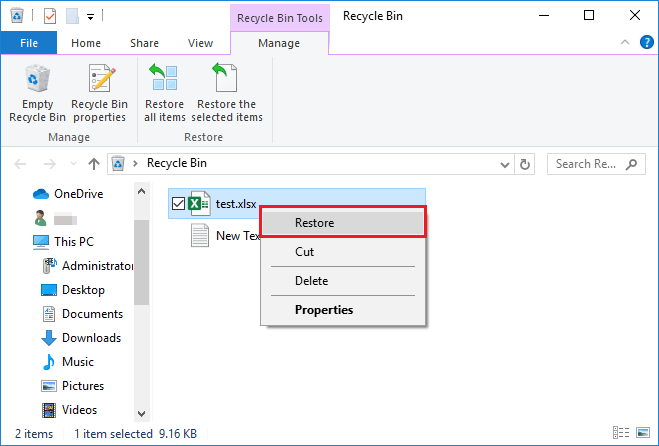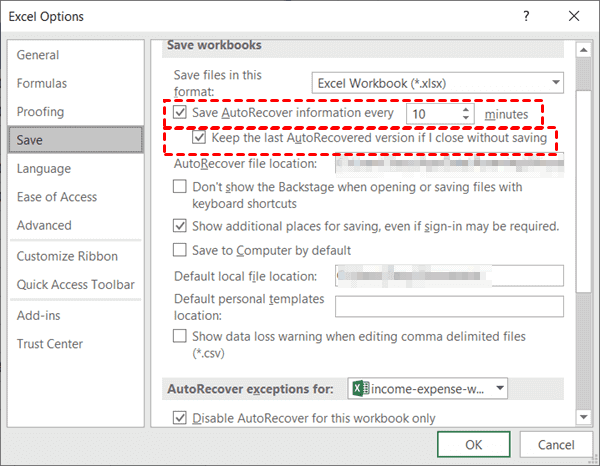Recovering Deleted Excel Sheets: Quick Guide

Recovering deleted Excel sheets can be a lifesaver in numerous scenarios, whether you've accidentally deleted important data or need to restore an earlier version of your spreadsheet. Excel, a staple software in countless businesses and personal finance settings, often contains vital information. When those sheets disappear, whether due to a slip of the hand or a system crash, panic can set in. Fortunately, Excel offers several methods to retrieve lost data. This guide will walk you through the steps to recover your deleted Excel sheets, ensuring you can breathe easy and get back to work without significant data loss.
Understanding Excel Data Recovery

Data loss in Excel can occur in various ways:
- Accidental deletion
- File corruption
- Software crashes
- Overwritten files
Understanding how data recovery works is the first step towards resolving these issues. Excel uses temporary files and has in-built recovery mechanisms to help users regain access to lost data.
Method 1: Using AutoRecover Feature

AutoRecover is one of the most straightforward methods to recover lost work in Excel:
- Open Excel: Start the Excel application on your computer.
- Navigate to File: Click on the ‘File’ tab, then select ‘Info’.
- AutoRecover Options: Click on ‘Manage Workbook’ and then ‘Recover Unsaved Workbooks’.
- Select Your File: From the list that appears, select the file you want to recover. Excel saves these files with a .xlsx or .xls extension but adds ‘Autorecovery’ to the filename.
- Save: Once opened, review the data and save the file to ensure it is saved permanently.
💡 Note: AutoRecover files are automatically deleted after 7 days unless you save them.
Method 2: Recycle Bin

When you delete an Excel file from your computer, it often ends up in the Recycle Bin or Trash:
- Open Recycle Bin or Trash: Navigate to your computer’s Recycle Bin or Trash folder.
- Search for File: Look for your Excel file. You might need to filter by date or file type to find it quickly.
- Restore File: Right-click the file and select ‘Restore’ or drag it back to its original location.
- Open the File: Open the file in Excel to verify that the sheet or data you need is there.
Method 3: Use Version History in OneDrive or SharePoint

If your Excel file is saved on OneDrive or SharePoint, you can use the version history:
- Open the File: Navigate to where the file is stored.
- Select Version History: Right-click on the file and select ‘Version History’ or look for this option in the file properties.
- Choose the Version: Review different versions until you find the one with your deleted data.
- Download or Restore: You can either download that version or restore it to overwrite the current file.
Method 4: Use Data Recovery Software

In cases where files are permanently deleted or damaged beyond Excel’s in-built capabilities, professional data recovery software might be necessary:
- Choose a reliable recovery software like Recuva, EaseUS Data Recovery Wizard, or Stellar Phoenix Excel Repair.
- Install and run the software, selecting the drive where your Excel file was stored.
- Initiate a scan for deleted files.
- Recover the file or files to a new location to ensure no overwriting occurs.
| Recovery Method | Applicable Scenario |
|---|---|
| AutoRecover | Excel crashed or was closed without saving |
| Recycle Bin | File was deleted from local storage |
| Version History | File is saved on OneDrive or SharePoint |
| Data Recovery Software | File was permanently deleted or corrupted |

Additional Tips for Preventing Data Loss

- Regular Saves: Get into the habit of saving your work frequently.
- Cloud Storage: Use cloud storage solutions like OneDrive for better version control and recovery options.
- Regular Backups: Keep backups of important Excel files on external drives or online storage.
- Enable AutoSave: Turn on AutoSave if you’re using OneDrive or SharePoint integrated with Excel.
- Keep Software Updated: Ensure your Excel software is up to date to benefit from the latest recovery features.
Recovering deleted Excel sheets is certainly not the end of the world. With the right tools and knowledge, you can often restore lost data efficiently. This guide provides you with multiple approaches, ensuring that whether you're a novice or an advanced user, you can minimize data loss. Remember, prevention is better than cure; adopt good file management practices to avoid the stress of data recovery in the future. By being proactive with backups and understanding Excel's built-in features, you safeguard your data, allowing you to focus on what's truly important: your work or projects without the fear of lost information.
How often should I save my Excel files?

+
It’s a good practice to save your Excel files every 5-10 minutes if you’re making significant changes or working on a critical document. If you’re using cloud storage with AutoSave enabled, it will save your work automatically.
Can I recover a sheet if I’ve saved over it?

+
If you’ve overwritten an Excel file, you might be able to recover an earlier version using the version history in OneDrive or SharePoint, or through specialized recovery software if the overwriting occurred on your local machine.
What are the best data recovery software options for Excel?

+
Some reputable data recovery software for Excel includes Recuva, EaseUS Data Recovery Wizard, and Stellar Phoenix Excel Repair. These tools can scan and recover deleted files or repair corrupted Excel files.
Can I prevent data loss in Excel?

+
Yes, regular backups, using AutoSave when working in the cloud, and keeping your Excel software up to date can greatly reduce the risk of data loss. Additionally, practicing good file management habits like frequent saving and maintaining multiple copies of important documents helps.